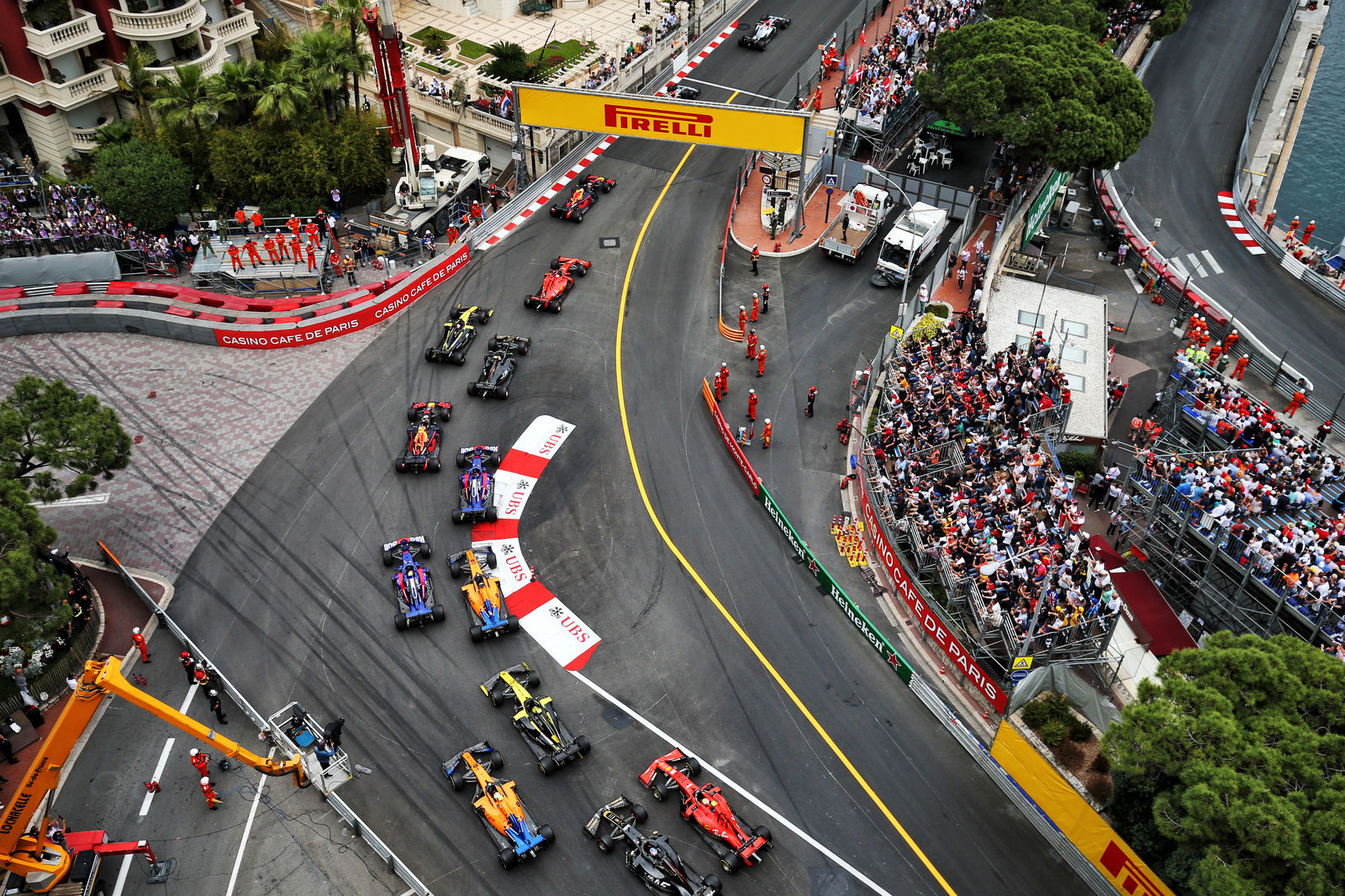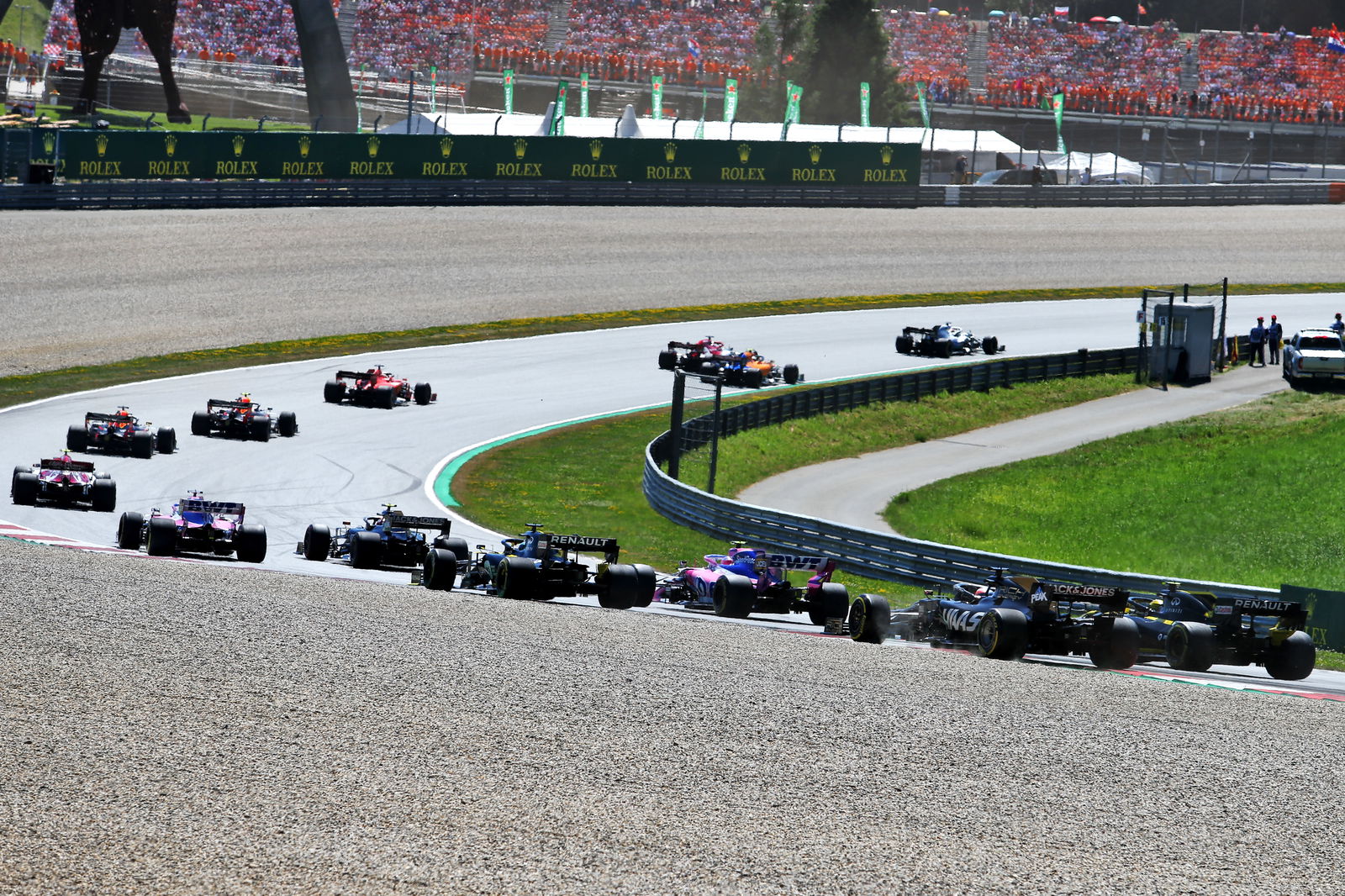Could COVID-19 force Formula 1 into a 2020-2021 super season?
The COVID-19 outbreak has decimated the start of the 2020 Formula 1 season and left the championship in uncharted territory.
A third of the season has already been affected by the coronavirus pandemic, with the opening seven rounds getting postponed or cancelled (in Monaco's case), following Thursday’s announcement that the Dutch, Spanish and Monaco rounds had been shelved.
Just how the global crisis will evolve and develop remains unknown, and any deterioration of the situation will surely result in further delays.

The COVID-19 outbreak has decimated the start of the 2020 Formula 1 season and left the championship in uncharted territory.
A third of the season has already been affected by the coronavirus pandemic, with the opening seven rounds getting postponed or cancelled (in Monaco's case), following Thursday’s announcement that the Dutch, Spanish and Monaco rounds had been shelved.
Just how the global crisis will evolve and develop remains unknown, and any deterioration of the situation will surely result in further delays.
“Formula 1 and the FIA expect to begin the 2020 Championship season as soon as it’s safe to do so after May and will continue to regularly monitor the ongoing COVID-19 situation,” an F1 statement read in response to the news.
But when will it be deemed ‘safe’ to begin the 2020 campaign amid the ongoing coronavirus crisis?
At the time of writing, the Azerbaijan Grand Prix on June 7 looks set to host the opening round of the season as part of a back-to-back double-header with the Canadian Grand Prix on June 14.
Canada’s prime minister Justin Trudeau has recently announced extreme travel restrictions for the country, which if still in effect at that stage, will cause an even bigger logistical nightmare than the one already posed for teams trying to turnaround from Baku and get to Montreal - a minimum 18-hour non-direct flight.
There must surely be doubts too over the French Grand Prix (June 28) given that the 24 Hours of Le Mans - originally scheduled for June 13-14 - has been moved back to September, as has the French Open, not to mention the strict measures imposed by the French government. The two races pencilled in for July in Austria and Great Britain could quickly find themselves with question marks hovering over them.
A move to bring the traditional summer shutdown forward to the spring in a bid to open up some space to reschedule some of the postponed races for August has been agreed, but unless the COVID-19 situation drastically improves over the coming weeks and months, we could reach a stage where August or September becomes the earliest opportunity before a race can feasibly be held.
F1 only needs eight races for the season to be officially considered a world championship but naturally both F1 and the teams will want as many races as possible due to the teams relying on receiving financial income from grands prix which is critical to their budgets.
Ross Brawn, F1’s managing director of motorsport, remains hopeful of still holding 17-18 of the planned 22 races this year but if the season is delayed until a late-summer start, there would surely be no practical - nor indeed responsible - way of cramming so many events into such a tight pre-Christmas window.
It has been suggested that races could creep into January next year if required, but in such a scenario, would it not therefore make more sense to follow Formula E’s principle of having a combined, cross-year championship as a one-off solution to this never-before-faced enemy?

There’s also the consideration of the 2021 technical rules postponement, which opens the door for races to stretch into 2021. F1 was originally set to introduce a major overhaul to the design of its cars from next year, which was already providing teams with a headache as they looked to balance 2020 and 2021 car development in parallel this year.
But the delayed start to the season complicated the matter further, resulting in a unanimous agreement between the 10 teams on Thursday that the technical rules should be delayed by a year.
That means that the technical rules from 2020, including the chassis, will carry over into 2021, aiding not only the teams who are hit hardest financially this year, but also possibly thrusting the idea of a ‘super season’ into a not unimaginable prospect.
A super season would enable most, if not all, of the 22 races to take place, meeting F1’s target, and with grands prix more evenly spaced out, that would also hugely benefit all personnel involved and ease the demanding workload placed on travelling staff.
Assuming the season spanned from say, August or September 2020 to June or July 2021, there would be a large window before the start of the 2022 season - which could take place in a usual March slot - for teams to have a much-needed rest and focus on development of an all-new car for the following season. F1 tyre supplier Pirelli would also be given an extra year to develop its 18-inch tyres.
Of course, such change would have ramifications down the line for all involved, as well as impacting on the single-seater ladder, with the majority of F1 drivers out of contract at the end of 2020. This year a frantic silly season had been anticipated with driver swaps, promotions and potential retirements.
All would need, at the very least, a temporary extension into 2021 which could turn transform driver contract talks.
It also applies to Haas too, as team owner Gene Haas weighs up his squad’s involvement in the sport. Committing to an extended season wouldn’t come as a significant stretch but supplier and contractor deals make it a more complicated matter than purely adding six-to-nine months on.
F1’s direct feeder series F2 and F3 would also face a roadblock and potentially throw many young drivers careers into question given the stretched budgets junior teams run at.
While at the very top, F1 owners Liberty Media would face an unfancied situation of writing off a whole separate season worth of races and revenue. It already looks impossible for the 2020 F1 season to be complete in its entirety, but would Chase Carey and company willingly gel together 2020-2021 and write off a full 2021 season?
This is by no means a bulletproof solution, but F1 has been rocked and faces an unprecedented that could change the shape of the championship as we know it forever.
Drastic action is required if the 2020 season is going to be saved.


